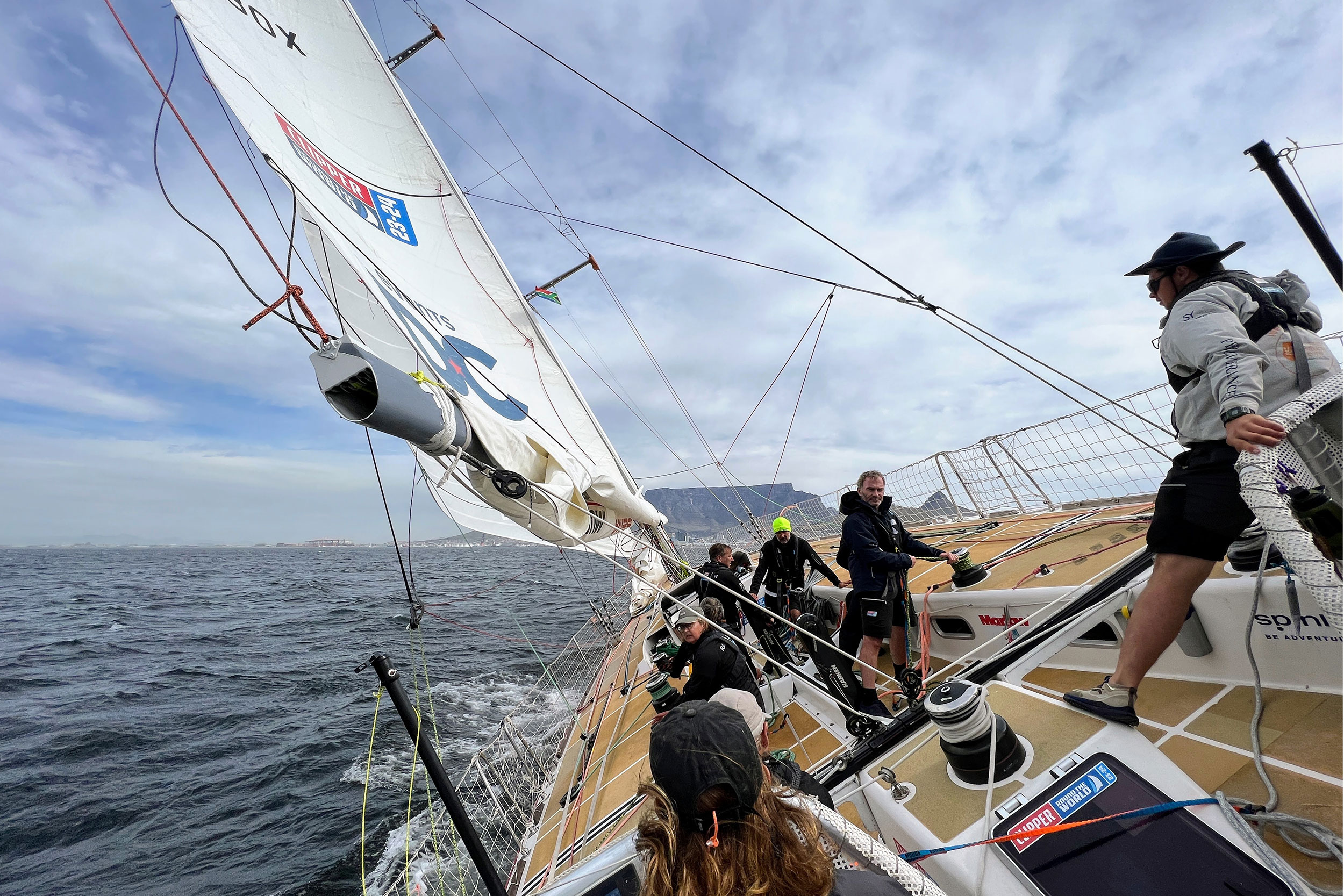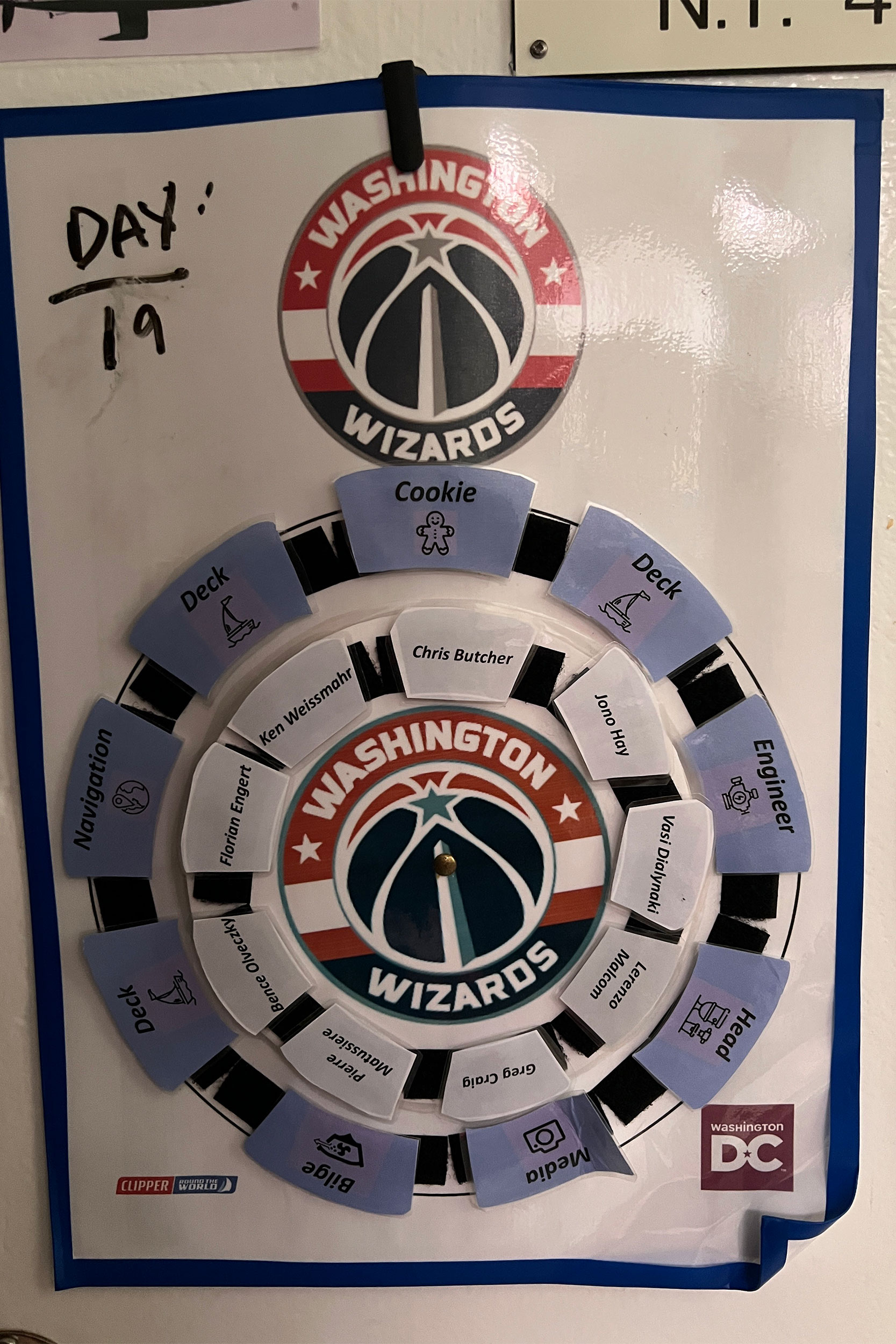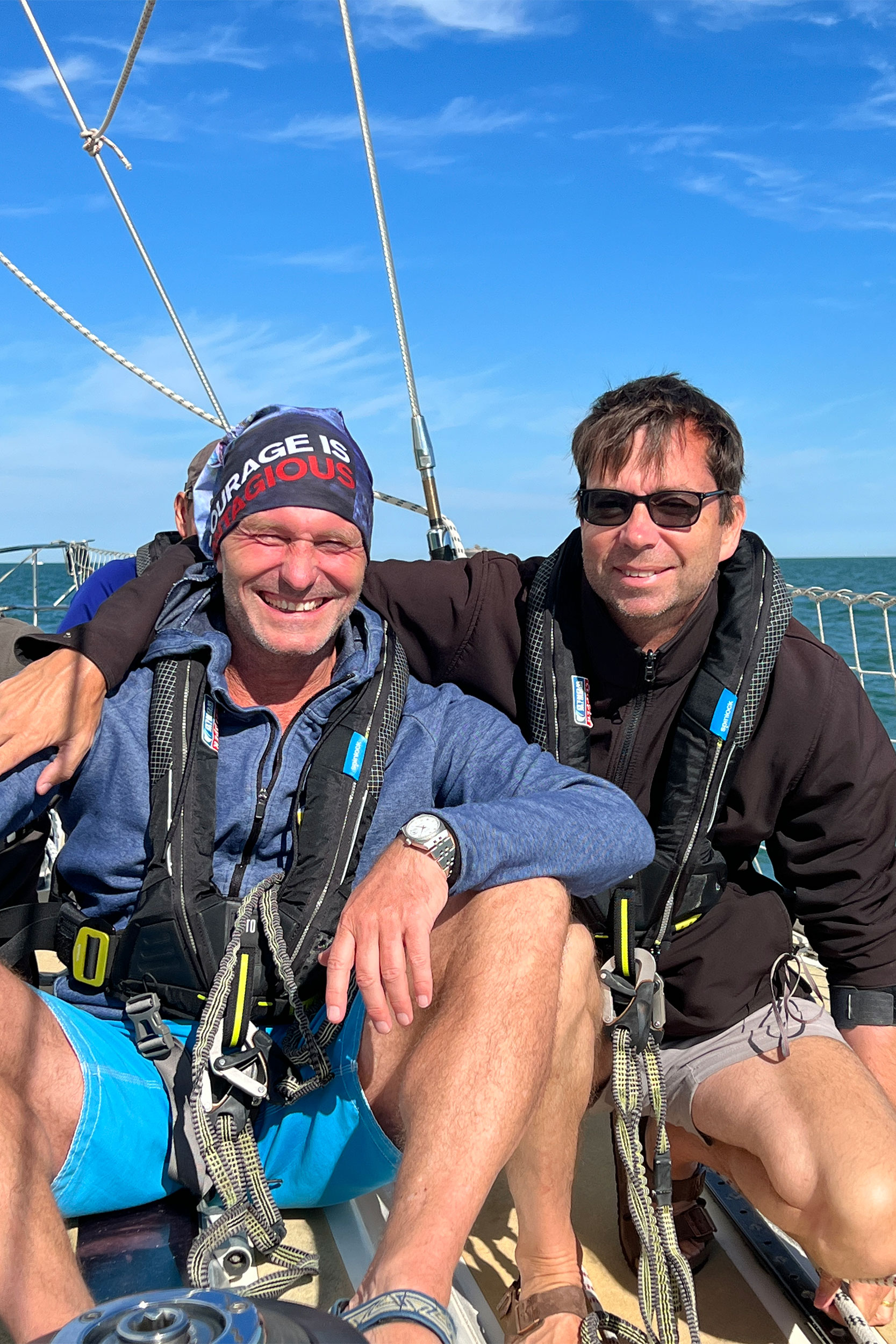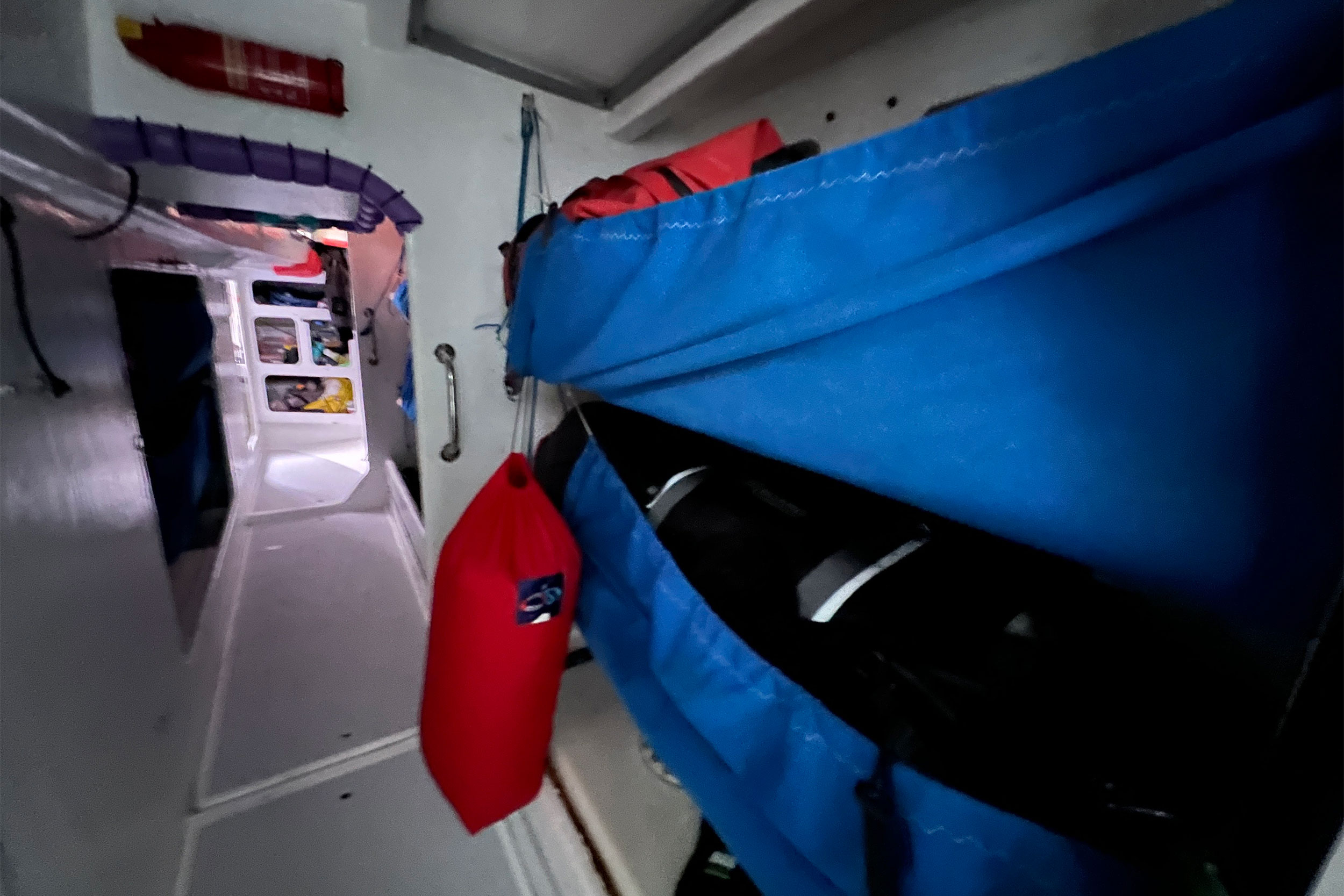
The 70-foot Washington, DC.
Photos provided by Bence Ölveczky
‘I am currently on the high seas … your email will definitely not be read’
Professors who are also good friends join Clipper Round the World yacht race
Email Professor Florian Engert these days, and receive the following out-of-office reply: “I am currently on the high seas, somewhere on the Southern Ocean, and your email will definitely not be read and most likely be deleted … If you urgently need to get in touch with me, you probably have to send the Navy. All is very good. Florian.”
It’s one way to spend a sabbatical. Over the next few weeks, the professor of molecular and cell biology will cross some of the world’s remotest and most dangerous ocean with friend and colleague Bence Ölveczky, professor of organismic and evolutionary biology.
They’re competing alongside others in the Clipper Round the World Race, which sends adventure-seeking teams of amateur sailors on a 40,000-mile circumnavigational course, divided between eight legs, aboard identical racing yachts. The professors hoisted sail Nov. 18 from Cape Town, South Africa, bound for Fremantle, Australia.


Harvard professors Florian Engert (left) and Bence Ölveczky are among the 18 crew members who share duties during this leg of the race.
Ölveczky, who’s been sailing since he was 2, first convinced Engert to join the race on a long bike ride during COVID. They’ve been preparing ever since, including four weeks of Clipper-mandated training over the last two summers. They’re well-versed in worst-case scenarios, like a sinking boat or a sailor overboard.
“We’ve been looking at the weather, and the wind looks like it’s going to be good, coming from behind, just pushing us all the way to Australia, hopefully,” Ölveczky said as he sipped a beer over Zoom.
Hopefully he enjoyed that beer, because he and Engert are in for a physical and mental test as two of 18 crew members aboard the 70-foot boat. Their leg of the race, known as the “Roaring Forties,” is a “white whale” for sailors, according to Ölveczky. It passes straight through the Southern Ocean, just above Antarctica, considered some of the world’s most fraught water due to its 30-foot swells and gale-force winds. The race leg traverses 5,500 miles (8,900 kilometers), with the expectation of 23 days at sea.


Space is limited, as seen in the sleeping quarters and galley.
“With me, it’s just an adventure,” said Engert, whose day job involves research into the neural circuits of zebrafish. “It’s going to be awesome, in the original meaning of the word.”
In addition to seasickness, sleep deprivation, and physical trials, the professors will spend several weeks in cramped quarters with their team. Their training also prepared them for the mental toll such circumstances might bring.
“I think it’s not that different from running a lab, in the sense that you have a bunch of ambitious people, all with their own wills and goals. They all want something out of this experience,” said Ölveczky, whose research at Harvard focuses on how rat neural circuits acquire and generate complex behaviors.
Ölveczky plans to be back in Cambridge in December, whereas Engert will continue on another leg of the race from Australia up to China, returning to Cambridge in late March.
Track the professors’ boat, Washington, DC, via the Clipper Round the World website, including a live Race Viewer.




